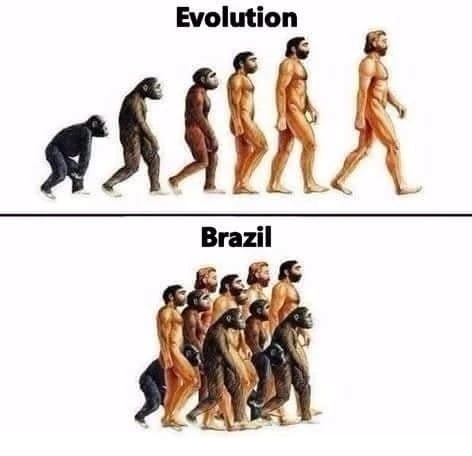
(the picture is not meant in a condescending way and was approved by our Brazilian partners).
When people talk about diversity in business, they often focus on team composition, global expansion, or inclusive practices. Rarely, however, do we look at a country’s biological and cultural fabric as a starting point. Brazil, one of the world’s largest economies and an increasingly important player in global markets, offers a compelling case. Its diversity is not only cultural and linguistic—it is genetic, rooted deeply in centuries of migration, colonization, and resilience.
Brazil’s population today is the result of one of the most complex demographic tapestries on the planet. From the arrival of the Portuguese in the 1500s to waves of enslaved Africans and later migrations from Europe, the Middle East, and Asia, the country has experienced an extraordinary confluence of peoples. What has emerged is not merely a melting pot, but a dynamic mosaic—distinct yet interconnected—reflected in the genetic code of its people.
Recent research has revealed just how intricate this blend truly is [Science]. Across Brazil’s vast territory, from the Amazon rainforest to the urban centers of São Paulo and Rio de Janeiro, there are profound regional differences in genetic ancestry. In the north, Indigenous roots run deeper; in the northeast, African ancestry is more pronounced. The south leans more European, shaped by waves of Italian and German immigrants. This is not just a story of historic movements, but one that still echoes today in language, food, and even patterns of disease resistance and response to medication.
For business leaders, this matters. Diversity on this scale creates a society that is inherently flexible, creative, and adaptive—qualities essential for innovation and global competitiveness. It also presents opportunities and challenges for companies looking to localize products, understand consumer behavior, or design inclusive health and education policies. Brazil’s unique demographic mix demands nuanced approaches to marketing, customer service, hiring, and leadership development.
But Brazil’s story is also one of inequity layered over diversity. The genetic complexity of its people reflects centuries of forced migration, social stratification, and uneven access to power. For businesses, especially those with a social impact mission or ESG commitments, understanding this context is critical. Building trust in Brazilian markets means not just recognizing diversity, but actively contributing to inclusion and equity.
Brazil’s richness lies in the way its past lives on in its people—literally. Every face in a São Paulo metro station or Salvador street corner is a living document of centuries of movement, struggle, and blending. And for companies looking to the future, this makes Brazil not just a market, but a mirror: of what a globalized, hybrid, and deeply interconnected world looks like.
Can you afford not to be in Brazil? Talk to us, we’ll help you succeed in Brazil.